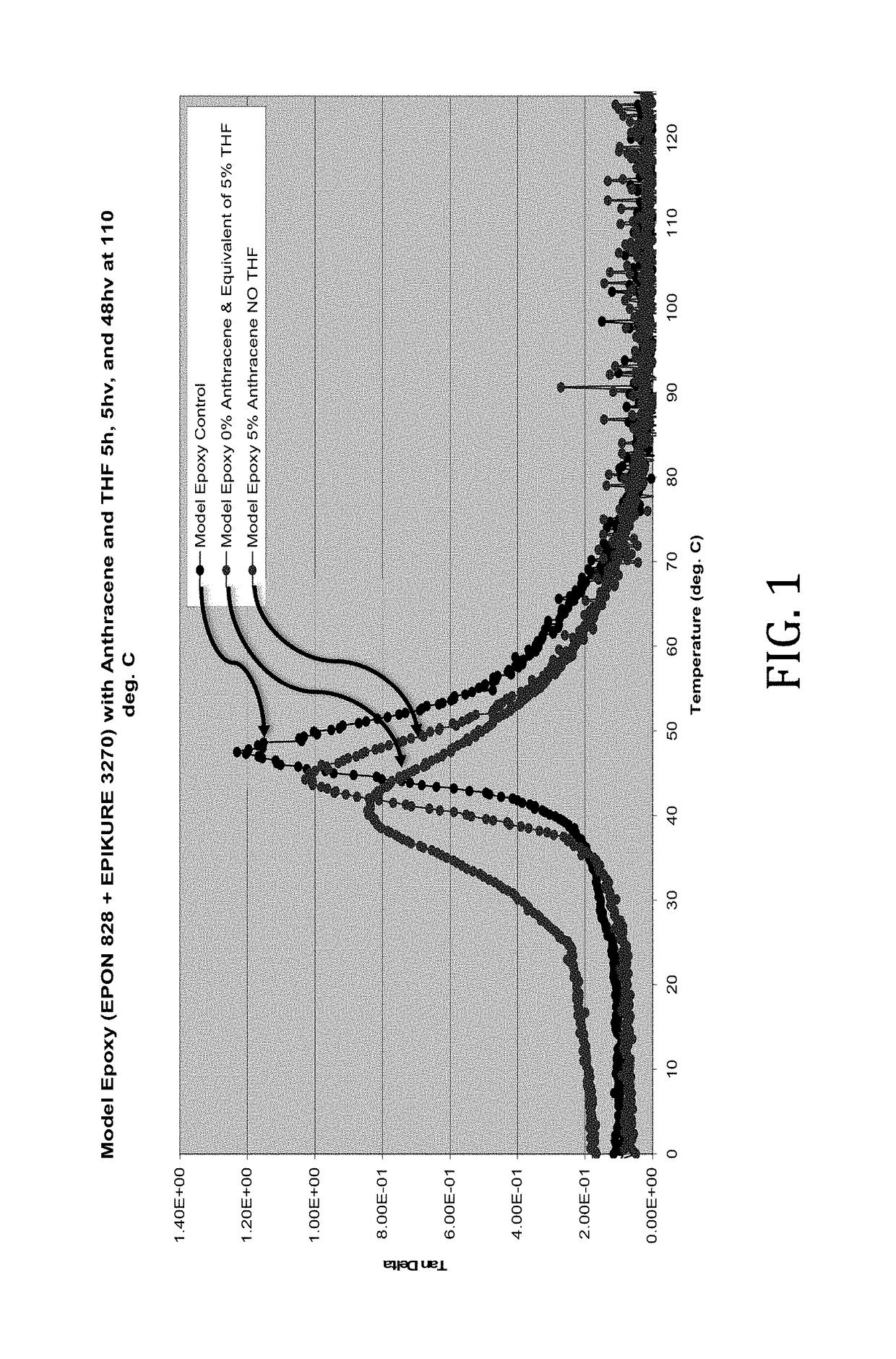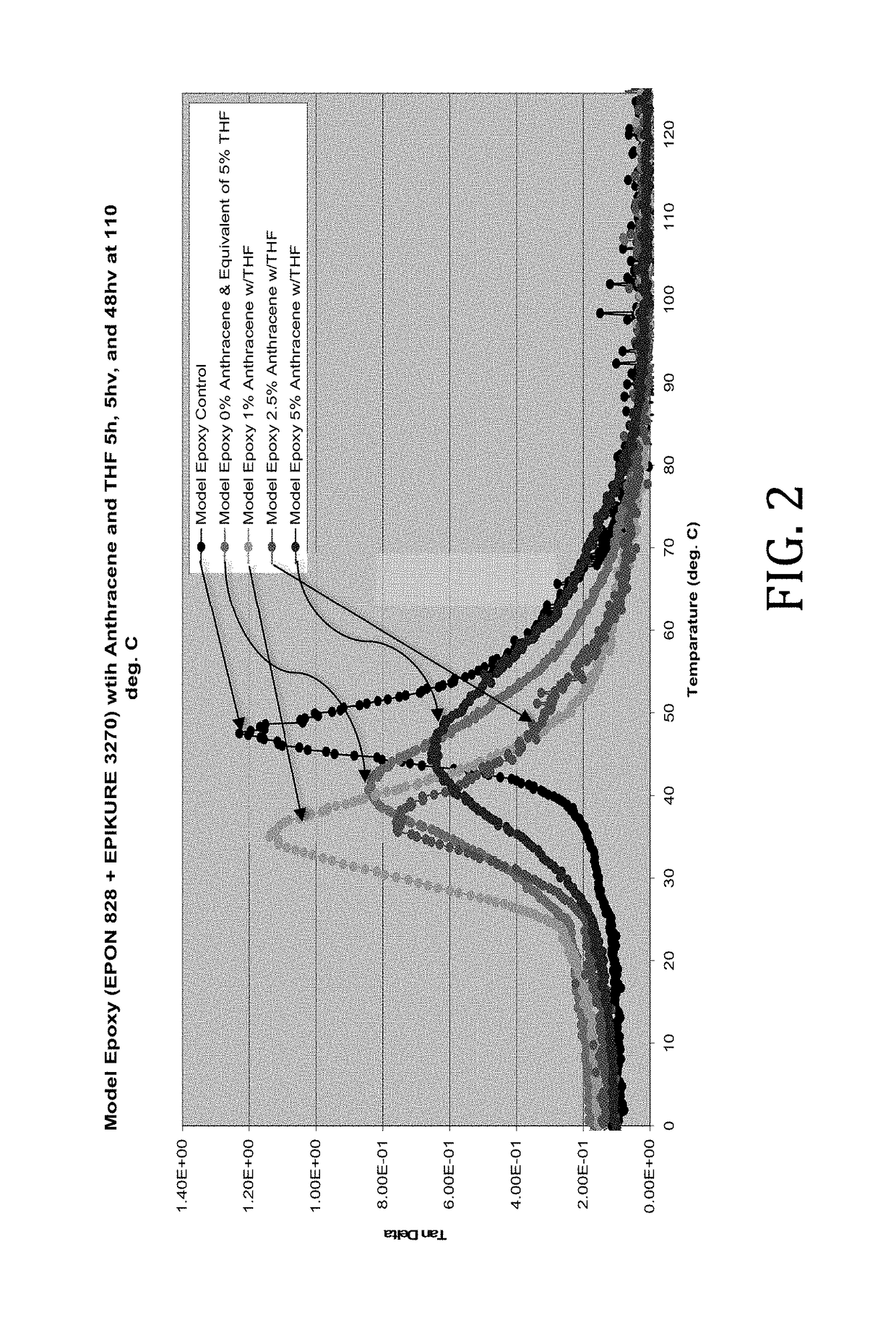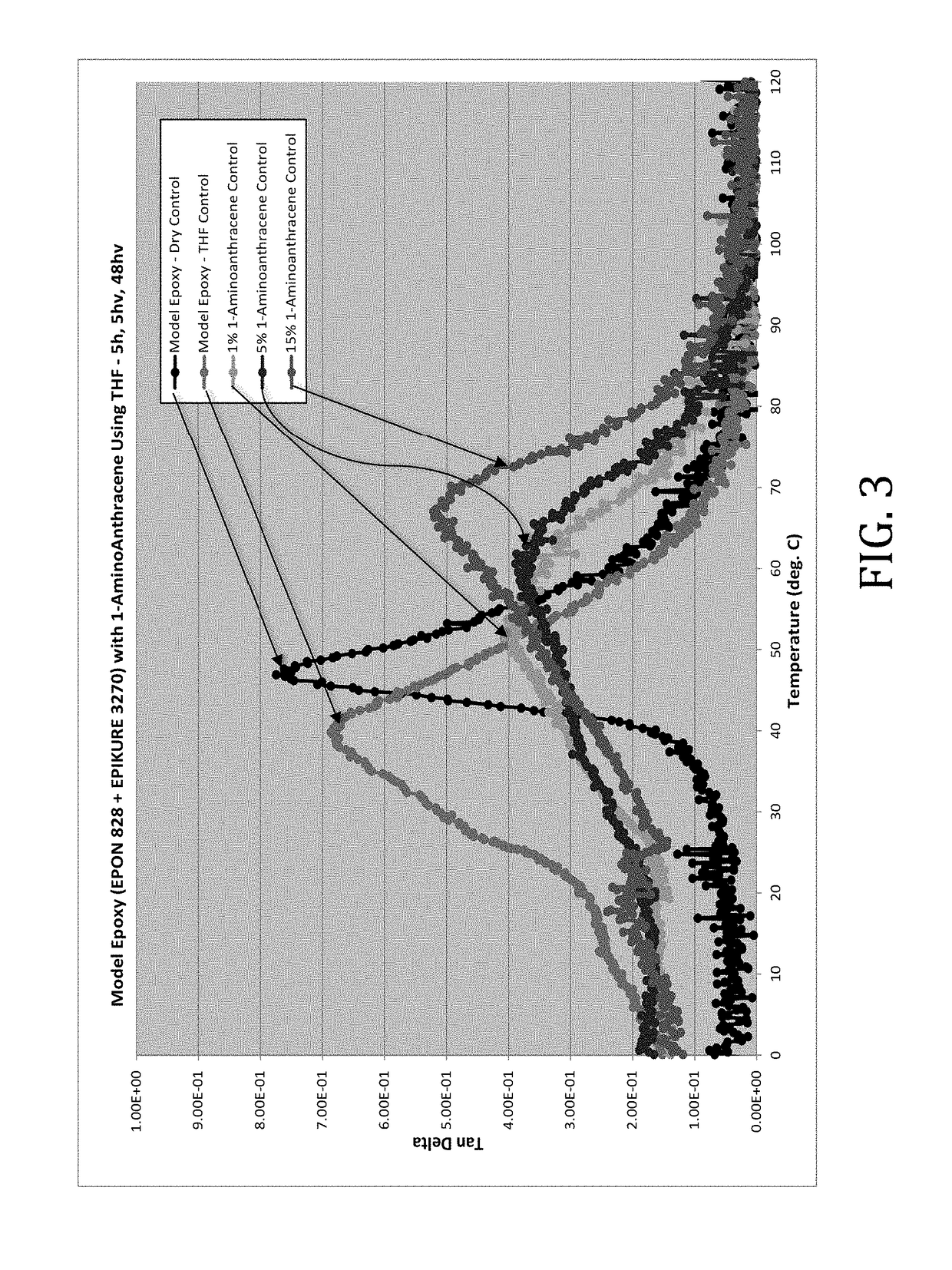Aminoanthracene—epoxy nanocomposite containing free anthracene
a technology of epoxy nanocomposite and anthracene, which is applied in the field of polymer nanocomposite materials, can solve the problems of large changes in the key properties of materials, high material specificity, and unpredictable effects of nanoparticle based nanofillers, and achieve improved thermal, rheological and physical properties, and increase tg values
- Summary
- Abstract
- Description
- Claims
- Application Information
AI Technical Summary
Benefits of technology
Problems solved by technology
Method used
Image
Examples
example 1
[0036]In this example, the rheological effects of the presence of anthracene and THF as simple physical mixtures with a model epoxy comprising EPON 828 (epoxy resin) and EPICURE 3270 (amine curing agent) reacted in approximately equal parts were determined. The anthracene and THF-containing samples were prepared as physical blends with the model epoxy components, molded, and permitted to cure at 110° C. for 57 hours, 52 of which were under vacuum. The samples were formulated as follows:
[0037]
Sample NumberAnthracene (wt %)THF (wt %)1002059350
[0038]Tan delta values of the model epoxies were determined across a range of temperatures. It was discovered that both anthracene and THF lowered the Tg of the model epoxy. However, as shown in FIG. 1, the plasticizing effects of the THF were much more pronounced.
example 2
[0039]As anthracene was not soluble in the model epoxy used, in this example the anthracene was dissolved in a minimum amount of THF required and physically blended with the model epoxy from Example 1 and cured as described in Example 1. The samples were formulated as follows:
[0040]
Sample NumberAnthracene (wt %)THF (wt %)1002059312242.5425559
[0041]The rheological effects of the introduction of anthracene dissolved in THF were determined. Tan delta values of the model epoxies were determined across a range of temperatures. As shown in FIG. 2, it was discovered that the plasticizing effects of anthracene and THF diminish as the 5% anthracene level is approached.
example 3
[0042]In this example, epoxy composite formulations comprising physical blends of 1-aminoanthracene dissolved in THF and the model epoxy from Example 1 were prepared and cured as described in Example 1. The samples were formulated as follows:
[0043]
Sample Number1-Aminoanthracene (wt %)THF (wt %)10020533153455351553
[0044]The rheological effects of the introduction of 1-aminoanthracene dissolved in THF were determined. Tan delta values of the model epoxies were determined across a range of temperatures. It was discovered, as shown in FIG. 3, that the addition of 1-aminoanthracene increased the Tg of the model epoxy significantly, a maximum increase of 27.8° C.
PUM
| Property | Measurement | Unit |
|---|---|---|
| Tg | aaaaa | aaaaa |
| Tg | aaaaa | aaaaa |
| diameter | aaaaa | aaaaa |
Abstract
Description
Claims
Application Information
 Login to View More
Login to View More - R&D
- Intellectual Property
- Life Sciences
- Materials
- Tech Scout
- Unparalleled Data Quality
- Higher Quality Content
- 60% Fewer Hallucinations
Browse by: Latest US Patents, China's latest patents, Technical Efficacy Thesaurus, Application Domain, Technology Topic, Popular Technical Reports.
© 2025 PatSnap. All rights reserved.Legal|Privacy policy|Modern Slavery Act Transparency Statement|Sitemap|About US| Contact US: help@patsnap.com



